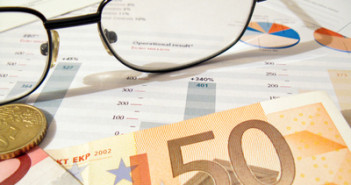EUR/USD reacted positively to this morning’s decision by a German court that the ESM bailout package was constitutional. However, the court did set a cap of 190 billion euros. In the Netherlands, voters go to the polls today to elect a new government. Attention will quickly shift to the US, where the FOMC holds a crucial meeting on Thursday. The Fed will decide whether to launch QE3 or not. Will Bernanke pull the trigger this time? In economic news, Euro-zone Industrial Production looked sharp as it gained 0.6%, well above the market forecast of 0.0%.
Here’s an update about technical lines, fundamental indicators and sentiment regarding EUR/USD.
EUR/USD Technical
- Asian session: Euro/dollar continued to move up, touching a high of 1.2883. The pair then retracted, consolidating at 1.2869. In the European session, the pair is testing the 1.29 line.
- Current range: 1.29 to 1.2960.
Further levels in both directions:Â Â 
- Below: 1.29, 1.2814, 1.2750, 1.2670, 1.2624, 1.2587, 1.2520, 1.2460, 1.24, 1.2360, 1.2330 and 1.2250.
- Above: 1.2960, 1.30, 1.3060, 1.3105, 1.32 and 1.3290.
- The pair has broken through 1.29 as it continues to push higher.
- 1.2960 is the next line of resistance.
- 1.2814 is providing strong support, temporarily capped the pair before yesterday’s (Sep. 11th) gains.
Euro/Dollar higher following ESM decision – click on the graph to enlarge.
EUR/USD Fundamentals
- 5:30 French CPI. Exp. +0.5%. Actual +0.7%.
- 6:00 German Final CPI. Exp. +0.3%. Actual +0.4%.
- 8:00 German Constitutional Court Ruling. The Court approved German participation in the ESM, but set a cap of 190 billion euros.
- 8:00 Italian Industrial Production. Exp. -0.5%. Actual -0.2%.
- All Day: Dutch Parliamentary Election.
- 9:00 Euro-zone Industrial Production. Exp. 0.0%. Actual +0.6%.
- 12:3o US Import Prices. Exp. +1.4%.
- 14:00 US Wholesale Inventories. Exp. +0.3%.
- 14:30 US Crude Oil Inventories. Exp. -1.8M.
- 17:00 US 10-year Bond Auction.
EUR/USD Sentiment
- German Court Upholds ESM: In a highly-anticipated decision earlier today, Germany’s Constitutional Court handed down its decision on the legality of the European Stability Mechanism as it stands for Germany. The Court generally enabled the ESM, but did set some conditions, including a cap €190 billion euros. If the German government wishes to enlarge its liabilities under the ESM, it must obtain parliament’s approval.  The court’s ruling paves the way for ratification of the OMT by EU officials.
- OMT can move forward: After relentless criticism of the ECB for its tepid response to the debt crisis, we can safely say that Draghi delivered. The ECB presented the Outright Monetary Transactions program: unlimited bond buying of bonds up to three years in maturity, provided that the country asks for aid. With the German Constitutional Court giving the nod to German participation in the ESM, Draghi can now move forward with OMT.
- Dutch election too close to call: The Netherlands has traditionally been a close ally of Germany, but the anti-Euro sentiment has been increasing, especially with the debt crisis and fiscal problems faced by Greece and Spain. Polls show an extremely close race between the two largest parties, the center-right Liberal party and the left-leaning Labor party. The good news is that both parties plan to adhere to the country’s deficit-reduction targets. At the same time, either party will have to cobble together a coalition, and  the new government could well demonstrate less enthusiasm for the euro-zone and reduced support for Germany at a critical juncture for both the zone and the continental currency.
- Fed mulls QE: US Non-Farm payrolls were a big disappointment, and with it speculation is rising that the Fed will respond with more dollar printing. The economy added 96,000 non-farm payrolls in August, well below the market estimate of 125,000 jobs. Will this be enough to prod the Fed into action? Bernanke’s speech in Jackson Hole reiterated that the the Fed would not step in unless economic conditions warranted such a move. Analysts are divided as to what happens now – a Reuters poll after the weak NFP numbers found that 60% of economists believe that the Fed will bring in QE3 this week, up from 45% percent in August.
- Spain expected to ask for aid from ECB: Spanish PM Rajoy hosted German Chancellor Merkel in Madrid and Spain is getting closer to asking for aid. This will likely occur after the German court rules on the ESM and as European finance ministers convene. After Catalonia asked for 5 billion euros of aid, also its southern neighbor joined in and banks are also tapping into the government’s limited resources. Unemployment in Spain is on the rise and the flight of capital is getting worse. There was no no good news on the banking front either – after reporting heavy losses, Bankia will receive an injection of 4.5 billion euros from Spain’s state bank bailout fund.
- Greece struggles with harsh austerity program: Greece’s 3 coalition partners are still unable to agree on new austerity, as the troika delegation lands in Athens. In the meantime, anti-austerity parties gain traction in the polls, and dismal unemployment figures worsened, as the unemployment rate rose to a staggering 24.4%, up from 23.5%. The government has no easy task in trying to implement cuts of 11.5 billion euros, which is necessary in order to received further bailout payments. Greece President Karolos Papoulias implored international creditors Tuesday to ease their fiscal demands, saying that the country has suffered a “merciless lashingâ€. Tough negotiations between the troika and the government are continuing in Athens.



